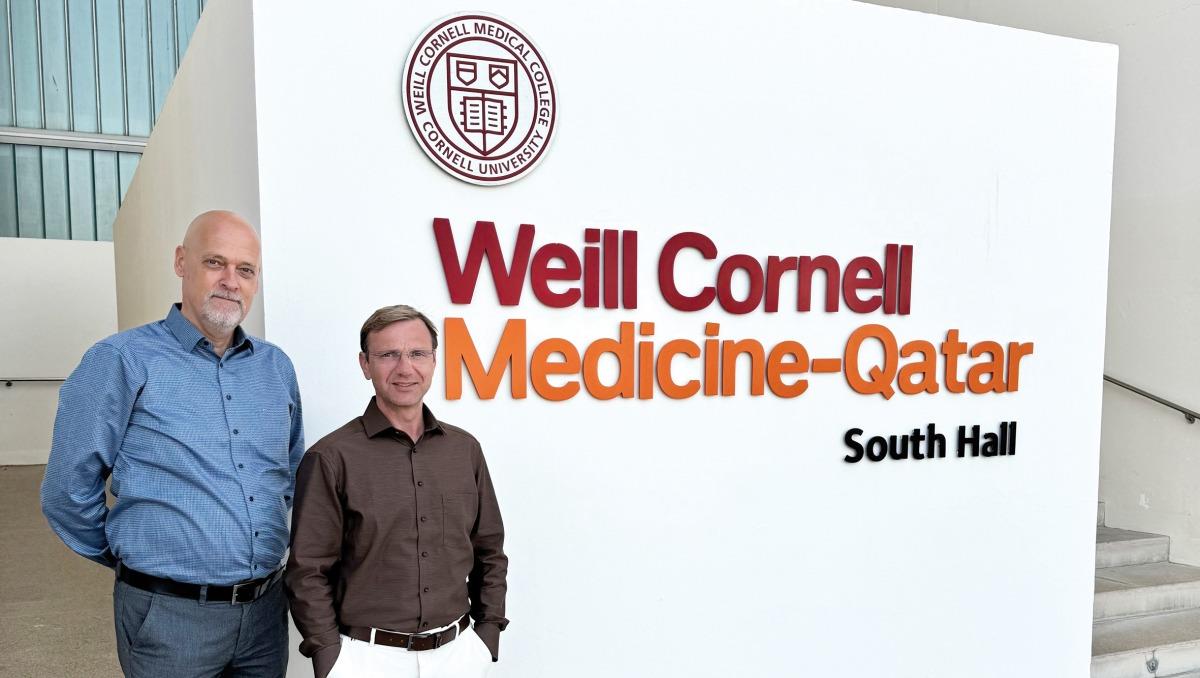
WCM-Q Researchers Publish Landmark Study Into Proteins
Doha, Qatar: Researchers at Weill Cornell Medicine-Qatar (WCM-Q) have published a study that marks the introduction to Qatar of some of the world's most advanced analytical tools for discovering the links between genetic variations, proteins and a wide range of diseases.
Using a new tool to measure proteins, WCM-Q researchers Dr. Karsten Suhre and Dr. Frank Schmidt analysed the blood samples of more than 320 individuals from a multi-ethnic cohort in Qatar. The tool, called the Proteograph Product Suite, allowed the WCM-Q researchers to quantify more than 18,000 different peptides (molecular structures formed of amino acids) from more than 3,000 proteins.
Bringing this new tool, provided by the US-based biotechnology company Seer, to WCM-Q further enhances Qatar's emerging status as a leader in the field of proteomics, which is the large-scale study of proteins, their structures, interactions, functions, and their impact on health.
Lead author Dr. Suhre, Professor of Physiology and Biophysics at WCM-Q, explained the significance of the new tool.
He said:“To understand how genetic diseases function, it is not enough to simply identify the genetic variation that causes the disease. We need to know more, how genes direct which proteins are synthesized by the body, in what quantities, and how they function. So, by analysing the relationships between the natural genetic variations in the human population and their effects on specific proteins we can obtain a deeper understanding of how organisms function as a whole, and also eventually a greater understanding of how genetic diseases come about and how to treat them. We believe this understanding can provide researchers with targets for the development of new drug therapies to treat complex diseases and alleviate suffering for patients in need.”
The study was published in Nature Communications, a leading scientific journal.
Dr. Schmidt, Associate Professor of Biochemistry and Director of the Proteomics Core at WCM-Q, said:“To investigate proteins, you need a way to identify and quantify them in samples of human tissue, such as blood. This involves some complicated chemistry and analysis with mass spectrometers, followed by analysis using powerful computers because there is a lot of information to sort through-it is quite technically challenging. Our study shows that the Seer Proteograph platform enables us to do this with an enhanced level of accuracy and in high quantities."

Legal Disclaimer:
MENAFN provides the information “as is” without warranty of any kind. We do not accept any responsibility or liability for the accuracy, content, images, videos, licenses, completeness, legality, or reliability of the information contained in this article. If you have any complaints or copyright issues related to this article, kindly contact the provider above.
















Comments
No comment